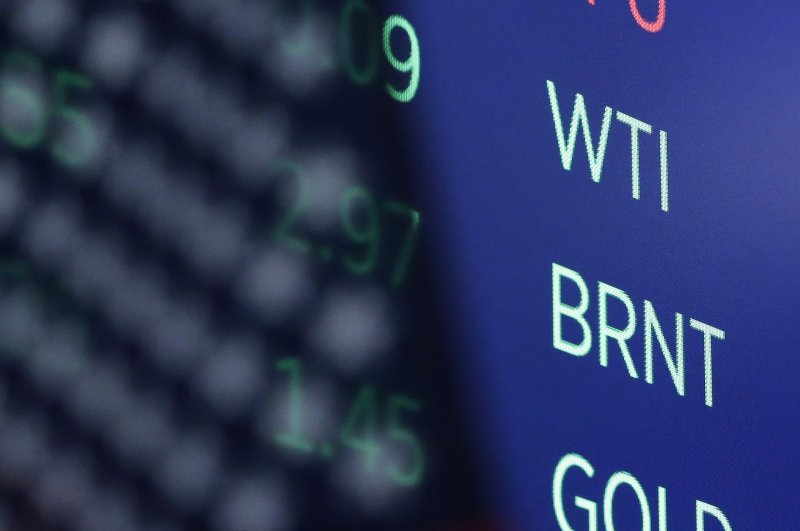Crude oil futures reacted positively on Monday morning to the United States announcement of eight waivers that would allow some big nations to continue to import Iranian oil. File Photo by John Angelillo/UPI |
License Photo
Nov. 5 (UPI) -- Crude oil future prices rose Monday following news that the United States has issued waivers to allow Iran to continue to sell crude oil to several big buying nations, including China and India.
As of 9.41 a.m. front-month WTI was up $63.77 per barrel, up 1 percent, while Brent front-month crude futures were $73.80 per barrel, a 1.3 percent increase.
"Crude oil has made a small recovery as U.S. sanctions against Iran come into force," Ole Hanson, head of commodity strategy at Saxo Bank, told UPI.
The reaction was "primarily due to the fact that the eight importing nations who had been granted waivers to continue buying oil included three of the world's biggest importers of crude oil, China, India and South Korea," Hansen said.
The sanctions against Iran are aimed at preventing the country from obtaining revenue, which is derived mostly from oil exports, and result from a decision announced on May 8, when U.S. President Donald Trump withdrew the country from a nuclear accord with Iran. There was not, however, any announcement of waivers at that time.
While there had been speculation that waivers were going to be issued, the formal announcement was made Friday and the nations receiving them were named early Monday.
Prices also reacted after deep declines during October, in part because of reports that increases in production by some of the biggest world producers, including Russia, Saudi Arabia and the United States, were going to compensate for potential declines.
"Having dropped by close to 20 percent during the past month, it makes sense that the sell-off now pauses. Also after having seen bullish oil bets held by hedge funds in WTI and Brent reaching 13- and 15-month lows respectively," Hansen added.
Another factor that has weighed on the market is the concern about a potential economic slowdown amid trade wars between the U.S. and China, the two world's biggest economies. There have been other reasons including rising U.S. interest rates, as well as an appreciation of the dollar currency, that could also affect crude oil demand at a time production increases.
"Producers pumping at will together with a clouded outlook for demand and up until now reduced concerns about Iran sanctions has raised the question of whether we have seen a fundamental shift in the market," Hansen said.















